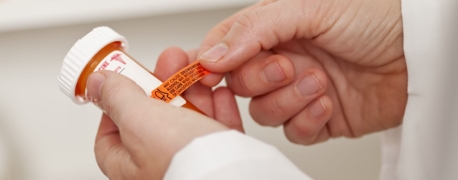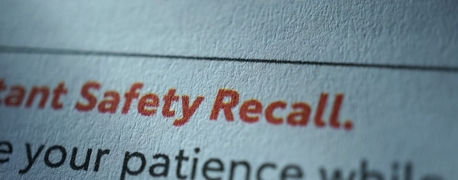History of Zantac (Ranitidine)

Last September, an online pharmacy called Valisure identified alarming amounts of nitrosodimethylamine (NDMA) in Zantac, a medicine that’s also sold as ranitidine in its generic forms. NDMA is known to be a carcinogen to humans. This discovery is significant because Zantac and its ranitidine equivalents have been used for heartburn and other issues associated with the overproduction of stomach acid since the 1980s.
While many countries initiated recalls and the largest pharmacies in the United States stopped selling Zantac, the FDA was slow to make an official announcement about the drug, citing the need for more research. However, in April of 2020, the FDA confirmed that many forms of ranitidine medications contain unacceptable levels of NDMA.
Here’s a history of Zantac and the events leading to one of the best-selling drugs of all time.
1983
Glaxo Holdings Ltd, a company that is now part of GlaxoSmithKline PLC, received approval from the FDA to sell Zantac. The drug’s first approved usage was for the short-term treatment of ulcers. At this point, over 31 countries had approved Zantac for use.
1988
By 1988, Zantac had become the world’s best-selling drug. Patients used it to treat ulcers and heartburn. It became particularly useful for the treatment of gastroesophageal reflux disease (GERD). When someone has GERD, they experience acid reflux that can damage the tissue of the esophagus.
A 1996 study also found that Glaxo’s marketing strategy contributed significantly to the success of Zantac. Public service announcements, physician education, celebrity media tours, and consumer-awareness bulletins were used by the pharmaceutical company to skyrocket its medication to success.
1997
When the Glaxo’s patent for ranitidine expired in the United States, competitors immediately launched generic alternatives to Zantac.
2004
Pfizer gained FDA approval to sell over-the-counter versions of Zantac in the United States. This event led to a deal with Sanofi SA, the company that currently sells Zantac in the United States. Other companies that sold Zantac in America include Johnson & Johnson, Boehringer, and Ingelheim Pharmaceuticals.
September 2019
Valisure alerted the FDA about the concerning amount of NDMA it found in ranitidine products. The discovery caused the agency to alert the American public but take no official action. The FDA cited a lack of research existing to issue a recall.
Just days after news about NDMA impurities broke, Novartis AG stopped distributing its generic versions of Zantac. On the same day, Canada requested all ranitidine producers to stop distributing their products. By the end of September, major American retailers such as CVS, Walgreens, and Rite Aid had pulled their ranitidine products from shelves.
October 2019
In the first week of October, the FDA confirmed that it found “unacceptable levels” of NDMA in ranitidine samples. While it did not initiate a recall, it advised companies to stop selling the drug. At this point, many countries had banned the sales of ranitidine products. The FDA cited the need for more testing to explain its slow response when compared to other nations. By the end of October, many Zantac and ranitidine producers stopped distributing their products or recalled them.
April 2020
Finally, after months of testing, the FDA released an official request for all Zantac and ranitidine products to stop being sold in the United States. It also informed those that took the medication to stop doing so and find an alternate drug. Notably, the FDA didn’t just confirm that ranitidine products had high levels of NDMA. It also found that their NDMA level could increase the longer they are kept on a shelf, even at normal room temperatures. This means that some ranitidine products could become increasingly carcinogenic the longer they are on store shelves.
Help Is Available from Our Zantac Lawsuit Lawyers
If you’ve developed cancer while taking Zantac or any other form of ranitidine, help is available from Arnold & Itkin. Our attorneys are ready to fight for losses associated with your cancer including medical bills, lost wages, and pain and suffering. Notably, we’re representing clients in mass tort cases related to ranitidine. This type of case is different from a class action because it doesn’t require plaintiffs to split their verdicts or settlements with other plaintiffs.
- Categories


